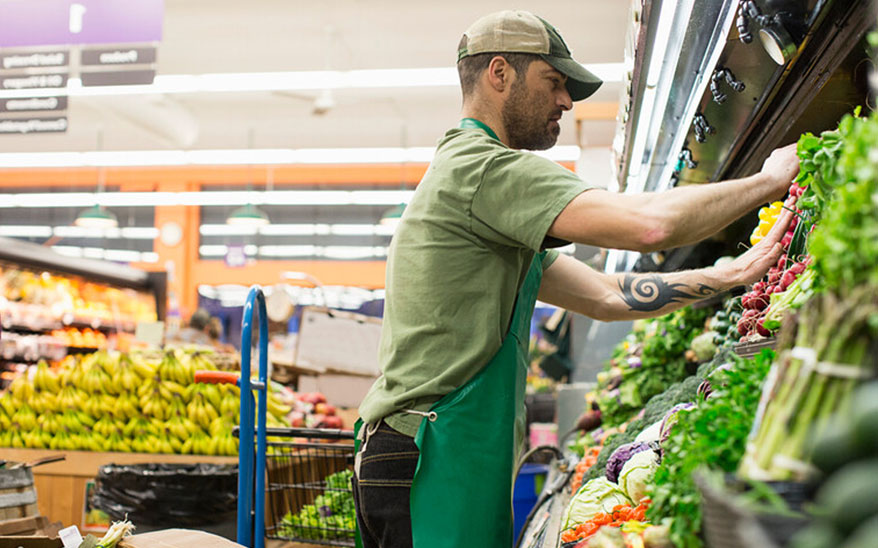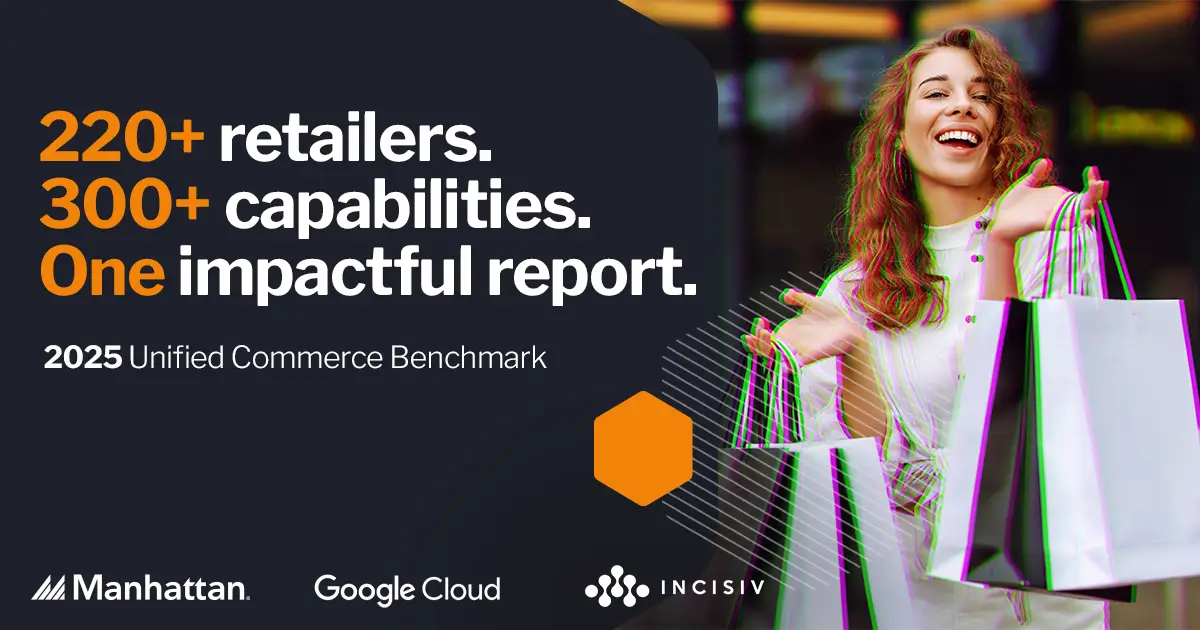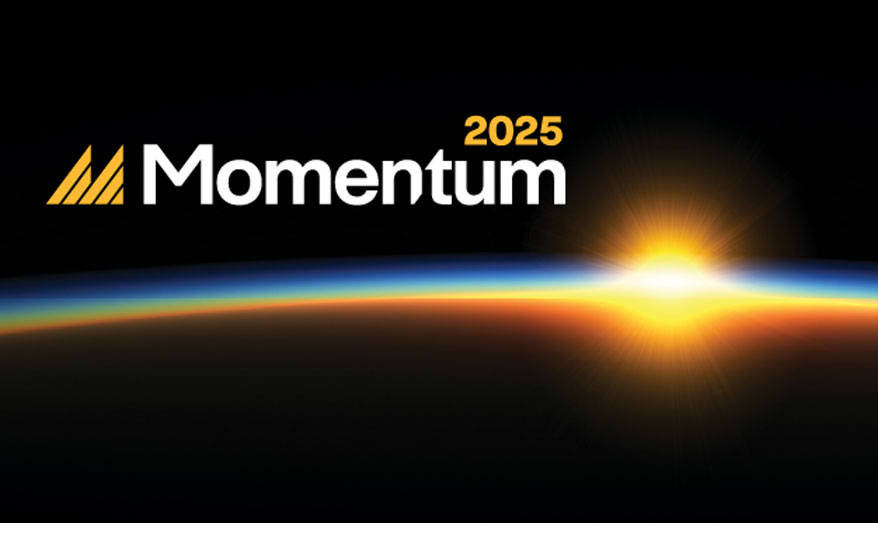Supply Chain Sustainability Starts with Efficiency
- October 13, 2022
- Ben Sillitoe
At first look, a retail supply chain conference isn’t the most obvious choice of destination to go seeking examples of sustainability and green thinking. The transportation of goods around the world to support global commerce has been positive for society, but it is certainly not up there on a list of environmental wins.
But think about it from a different angle, and it’s exactly where we should be on the hunt for sustainability and greener thinking. As retailers break down their carbon emissions into Scope 1-3, it is the wider supply chain (Scope 3) where there is maybe the most room for improvement and where the biggest gains can be made from a carbon footprint reduction perspective.
I’m of the view – in business, at least – sustainability starts with efficiency.
All retail supply chain bosses will be only too aware how inefficiencies in the procurement, ordering, and transportation of goods across the globe was one of the key challenges of the pandemic era for businesses, so convincing them this is a good area of focus should not be difficult.
Manhattan’s SVP product management, Brian Kinsella, told the audience at Manhattan Exchange EMEA, in Berlin, a good deal of Manhattan’s work over the last 20-30 years in bringing new supply chain technology to market “indirectly has been about sustainability.”
The long-held intentions of the company's innovation are “fewer miles driven, more efficient packing, [and] more efficient shipment to customer,” he noted. Customer-controlled fulfillment which is part of the suite of new tech products now available to Manhattan retail customers has some notable sustainability credentials, too.
It gives consumers “a chance to change their order to reduce the likelihood, frequency and volume of returns coming back.” That unnecessary shipping is a great way to keep a check on that carbon footprint, as retailers build wider environmental, social and governance strategies and, potentially, look to remodel the way they operate altogether.
“If you can reduce that by a substantial proportion that’s a lot of shipments off the road,” Kinsella said.
Green Matters
Eddie Capel, CEO of Manhattan, and his wider team made sure greener supply chain management and optimization was on the agenda at Exchange 2022. All the retailers on stage referenced the importance of doing their bit in terms of reducing carbon footprint.
From Aldi Sud, making a rare public speaking appearance, referencing the need to be more efficient across its supply chain, to Scotch and Soda speaking about the need to help reduce fashion’s impact on the environment, it is clearly a subject on retail leaders’ radars.
For Capel, there are so many areas to consider when it comes to the supply chain and the environment. And warehouse management is evidently a great place to start.
Capel said driving miles out of transportation of goods, and air out of trucks and containers is key. “If we can do that we can have a very big impact on the sustainability of our planet,” he argued.
Getting the right-sized boxes for the right-sized products means retailers will be able to get more boxes on a truck. Capel says start there, before moving on to issues such as transportation management, and reducing miles and looking to route optimization.
“It requires tech and process underlying it, to make it effective,” he says, or: “All the Manhattan systems working together in an organized way.”
Push and Pull
The incremental changes building up to wider transformation and large-scale carbon footprint reduction is certainly to be commended but it’ll take time for this to start addressing the wider problems the planet faces. Huge leaps will be made in the green agenda when fossil fuels are reduced and removed from commerce.
Many retailers have committed to reducing their reliance on fossil fuel transportation over the next decade, and this will help greatly as part of industry-wide efforts to decarbonize.
But another big obstacle in progressing the environmental agenda is consumer attitude. On the first morning of Exchange, Manhattan released research showing 51% of consumers reported environmental/sustainability efforts were important or top considerations when choosing where and with whom to shop.
We hear that a lot. Consumers will always say this is important to them if asked the question.
As part of the same research, 26% of retailers believe creating a more environmentally aware and sustainable supply chain is one of their top three priorities for 2023.
Seeing those figures, there is a strong argument for ploughing ahead with huge investment to keep customers happy from an environmental perspective. But the reality is far more nuanced than those headline statistics.
Henri Seroux, Manhattan’s SVP EMEA, acknowledged humans are complicated, sometimes contradictory.
“We think about all the things we want to do right, but suddenly we fall in love with a product and want it to appear on our doorstep at 10am,” he said, highlighting the challenges retailers face in being green and giving customers the service they desire.
There’s certainly a dichotomy when it comes to what consumers want when it comes to eco-friendly retailing. That doesn’t make it easy for the brands and retailers trying to work that out.
“We are investing in tech to give customers choice and education,” explained Seroux, who added it is “a great time” for people to join technology companies “and invent systems for a better world”. This is where important change can happen right now.
So there you have it, several examples of greener thinking at a supply chain conference. As Capel explained in a Green Retail World article last year, sustainability and the environment need to be high on the agenda for all organizations. His team is bringing tech to market that helps retailers embed that thinking into their existing operations. And it's available right now.






